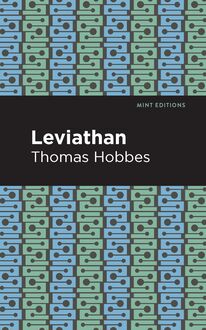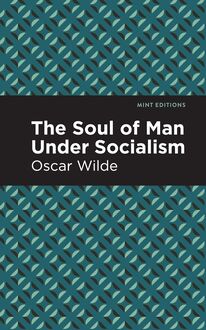-
 Univers
Univers
-
 Ebooks
Ebooks
-
 Livres audio
Livres audio
-
 Presse
Presse
-
 Podcasts
Podcasts
-
 BD
BD
-
 Documents
Documents
-
- Cours
- Révisions
- Ressources pédagogiques
- Sciences de l’éducation
- Manuels scolaires
- Langues
- Travaux de classe
- Annales de BEP
- Etudes supérieures
- Maternelle et primaire
- Fiches de lecture
- Orientation scolaire
- Méthodologie
- Corrigés de devoir
- Annales d’examens et concours
- Annales du bac
- Annales du brevet
- Rapports de stage
La lecture à portée de main
Vous pourrez modifier la taille du texte de cet ouvrage
Découvre YouScribe en t'inscrivant gratuitement
Je m'inscrisDécouvre YouScribe en t'inscrivant gratuitement
Je m'inscrisEn savoir plus
Vous pourrez modifier la taille du texte de cet ouvrage
En savoir plus

Description
“When people ask me what has happened in my long lifetime I do not refer them to the newspaper files and to the authorities, but to (Sinclair’s) novels.” -George Bernard Shaw
“Practically alone among the American writers of his generation, Sinclair put to the American public the fundamental questions raised by capitalism in such a way that they could not escape them.” -Edmund Wilson
Upton Sinclair’s 1906 bestseller The Jungle is a startling and powerful novel depicting the plight of Jurgis Rudkus, a Slavic worker who immigrated to the United States in the early 20th Century for a better life. His dream of a finding a job, building a family, and buying a home are initially fulfilled in the Union Stock Yards in Chicago. Work in the meatpacking industry proves to be a harrowing and desperate existence, and his personal life is beset by a succession of hardships and tragedy. As bleak as his journey is, Jurgis finally finds his light in a new-found political ideology.
The Jungle is considered profoundly important in its exposure of despair at the margins of working-class life, and the atrocious descriptions of the unsanitary conditions in the meatpacking process. The novel led to revolutionary reform of the industrial food industry and workers’ rights, and powerfully addresses many of the same issues that we are still grappling with today.
With a stunning new cover, and professionally typeset manuscript, this edition of The Jungle is both modern and readable.
Sujets
Informations
| Publié par | Mint Editions |
| Date de parution | 28 juillet 2020 |
| Nombre de lectures | 1 |
| EAN13 | 9781513265414 |
| Langue | English |
Informations légales : prix de location à la page 0,0500€. Cette information est donnée uniquement à titre indicatif conformément à la législation en vigueur.
Extrait
The Jungle
Upton Sinclair
The Jungle was first published in 1905.
This edition published by Mint Editions 2020.
Print ISBN 9781513264738 | E-ISBN 9781513265414
Published by Mint Editions®
minteditionbooks.com
Publishing Director: Jennifer Newens
Project Manager: Gabrielle Maudiere
Design & Production: Rachel Lopez Metzger
Chapter 1
I t was four o’clock when the ceremony was over and the carriages began to arrive. There had been a crowd following all the way, owing to the exuberance of Marija Berczynskas. The occasion rested heavily upon Marija’s broad shoulders—it was her task to see that all things went in due form, and after the best home traditions; and, flying wildly hither and thither, bowling every one out of the way, and scolding and exhorting all day with her tremendous voice, Marija was too eager to see that others conformed to the proprieties to consider them herself. She had left the church last of all, and, desiring to arrive first at the hall, had issued orders to the coachman to drive faster. When that personage had developed a will of his own in the matter, Marija had flung up the window of the carriage, and, leaning out, proceeded to tell him her opinion of him, first in Lithuanian, which he did not understand, and then in Polish, which he did. Having the advantage of her in altitude, the driver had stood his ground and even ventured to attempt to speak; and the result had been a furious altercation, which, continuing all the way down Ashland Avenue, had added a new swarm of urchins to the cortege at each side street for half a mile.
This was unfortunate, for already there was a throng before the door. The music had started up, and half a block away you could hear the dull “broom, broom” of a cello, with the squeaking of two fiddles which vied with each other in intricate and altitudinous gymnastics. Seeing the throng, Marija abandoned precipitately the debate concerning the ancestors of her coachman, and, springing from the moving carriage, plunged in and proceeded to clear a way to the hall. Once within, she turned and began to push the other way, roaring, meantime, “Eik! Eik! Uzdaryk-duris!” in tones which made the orchestral uproar sound like fairy music.
“Z. Graiczunas, Pasilinksminimams darzas. Vynas. Sznapsas. Wines and Liquors. Union Headquarters”—that was the way the signs ran. The reader, who perhaps has never held much converse in the language of far-off Lithuania, will be glad of the explanation that the place was the rear room of a saloon in that part of Chicago known as “back of the yards.” This information is definite and suited to the matter of fact; but how pitifully inadequate it would have seemed to one who understood that it was also the supreme hour of ecstasy in the life of one of God’s gentlest creatures, the scene of the wedding feast and the joy-transfiguration of little Ona Lukoszaite!
She stood in the doorway, shepherded by Cousin Marija, breathless from pushing through the crowd, and in her happiness painful to look upon. There was a light of wonder in her eyes and her lids trembled, and her otherwise wan little face was flushed. She wore a muslin dress, conspicuously white, and a stiff little veil coming to her shoulders. There were five pink paper roses twisted in the veil, and eleven bright green rose leaves. There were new white cotton gloves upon her hands, and as she stood staring about her she twisted them together feverishly. It was almost too much for her—you could see the pain of too great emotion in her face, and all the tremor of her form. She was so young—not quite sixteen—and small for her age, a mere child; and she had just been married—and married to Jurgis, * of all men, to Jurgis Rudkus, he with the white flower in the buttonhole of his new black suit, he with the mighty shoulders and the giant hands.
Ona was blue-eyed and fair, while Jurgis had great black eyes with beetling brows, and thick black hair that curled in waves about his ears—in short, they were one of those incongruous and impossible married couples with which Mother Nature so often wills to confound all prophets, before and after. Jurgis could take up a two-hundred-and-fifty-pound quarter of beef and carry it into a car without a stagger, or even a thought; and now he stood in a far corner, frightened as a hunted animal, and obliged to moisten his lips with his tongue each time before he could answer the congratulations of his friends.
Gradually there was effected a separation between the spectators and the guests—a separation at least sufficiently complete for working purposes. There was no time during the festivities which ensued when there were not groups of onlookers in the doorways and the corners; and if any one of these onlookers came sufficiently close, or looked sufficiently hungry, a chair was offered him, and he was invited to the feast. It was one of the laws of the veselija that no one goes hungry; and, while a rule made in the forests of Lithuania is hard to apply in the stockyards district of Chicago, with its quarter of a million inhabitants, still they did their best, and the children who ran in from the street, and even the dogs, went out again happier. A charming informality was one of the characteristics of this celebration. The men wore their hats, or, if they wished, they took them off, and their coats with them; they ate when and where they pleased, and moved as often as they pleased. There were to be speeches and singing, but no one had to listen who did not care to; if he wished, meantime, to speak or sing himself, he was perfectly free. The resulting medley of sound distracted no one, save possibly alone the babies, of which there were present a number equal to the total possessed by all the guests invited. There was no other place for the babies to be, and so part of the preparations for the evening consisted of a collection of cribs and carriages in one corner. In these the babies slept, three or four together, or wakened together, as the case might be. Those who were still older, and could reach the tables, marched about munching contentedly at meat bones and bologna sausages.
T HE ROOM IS ABOUT THIRTY feet square, with whitewashed walls, bare save for a calendar, a picture of a race horse, and a family tree in a gilded frame. To the right there is a door from the saloon, with a few loafers in the doorway, and in the corner beyond it a bar, with a presiding genius clad in soiled white, with waxed black mustaches and a carefully oiled curl plastered against one side of his forehead. In the opposite corner are two tables, filling a third of the room and laden with dishes and cold viands, which a few of the hungrier guests are already munching. At the head, where sits the bride, is a snow-white cake, with an Eiffel tower of constructed decoration, with sugar roses and two angels upon it, and a generous sprinkling of pink and green and yellow candies. Beyond opens a door into the kitchen, where there is a glimpse to be had of a range with much steam ascending from it, and many women, old and young, rushing hither and thither. In the corner to the left are the three musicians, upon a little platform, toiling heroically to make some impression upon the hubbub; also the babies, similarly occupied, and an open window whence the populace imbibes the sights and sounds and odors.
Suddenly some of the steam begins to advance, and, peering through it, you discern Aunt Elizabeth, Ona’s stepmother—Teta Elzbieta, as they call her—bearing aloft a great platter of stewed duck. Behind her is Kotrina, making her way cautiously, staggering beneath a similar burden; and half a minute later there appears old Grandmother Majauszkiene, with a big yellow bowl of smoking potatoes, nearly as big as herself. So, bit by bit, the feast takes form—there is a ham and a dish of sauerkraut, boiled rice, macaroni, bologna sausages, great piles of penny buns, bowls of milk, and foaming pitchers of beer. There is also, not six feet from your back, the bar, where you may order all you please and do not have to pay for it. “Eiksz! Graicziau!” screams Marija Berczynskas, and falls to work herself—for there is more upon the stove inside that will be spoiled if it be not eaten.
So, with laughter and shouts and endless badinage and merriment, the guests take their places. The young men, who for the most part have been huddled near the door, summon their resolution and advance; and the shrinking Jurgis is poked and scolded by the old folks until he consents to seat himself at the right hand of the bride. The two bridesmaids, whose insignia of office are paper wreaths, come next, and after them the rest of the guests, old and young, boys and girls. The spirit of the occasion takes hold of the stately bartender, who condescends to a plate of stewed duck; even the fat policeman—whose duty it will be, later in the evening, to break up the fights—draws up a chair to the foot of the table. And the children shout and the babies yell, and every one laughs and sings and chatters—while above all the deafening clamor Cousin Marija shouts orders to the musicians.
The musicians—how shall one begin to describe them? All this time they have been there, playing in a mad frenzy—all of this scene must be read, or said, or sung, to music. It is the music which makes it what it is; it is the music which changes the place from the rear room of a saloon in back of the yards to a fairy place, a wonderland, a little corner of the high mansions of the sky.
The little person who leads this trio is an inspired man. His fiddle is out of tune, and there is no rosin on
-
 Univers
Univers
-
 Ebooks
Ebooks
-
 Livres audio
Livres audio
-
 Presse
Presse
-
 Podcasts
Podcasts
-
 BD
BD
-
 Documents
Documents
-
Jeunesse
-
Littérature
-
Ressources professionnelles
-
Santé et bien-être
-
Savoirs
-
Education
-
Loisirs et hobbies
-
Art, musique et cinéma
-
Actualité et débat de société
-
Jeunesse
-
Littérature
-
Ressources professionnelles
-
Santé et bien-être
-
Savoirs
-
Education
-
Loisirs et hobbies
-
Art, musique et cinéma
-
Actualité et débat de société
-
Actualités
-
Lifestyle
-
Presse jeunesse
-
Presse professionnelle
-
Pratique
-
Presse sportive
-
Presse internationale
-
Culture & Médias
-
Action et Aventures
-
Science-fiction et Fantasy
-
Société
-
Jeunesse
-
Littérature
-
Ressources professionnelles
-
Santé et bien-être
-
Savoirs
-
Education
-
Loisirs et hobbies
-
Art, musique et cinéma
-
Actualité et débat de société
- Cours
- Révisions
- Ressources pédagogiques
- Sciences de l’éducation
- Manuels scolaires
- Langues
- Travaux de classe
- Annales de BEP
- Etudes supérieures
- Maternelle et primaire
- Fiches de lecture
- Orientation scolaire
- Méthodologie
- Corrigés de devoir
- Annales d’examens et concours
- Annales du bac
- Annales du brevet
- Rapports de stage




















